Graham Reid | | 5 min read
Ornette Coleman and Charlie Haden: Some Day (from Soapsuds Soapsuds on Artists House, 1978)
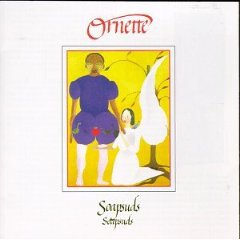
English rock-writer Charles Shaar Murray had a neat, if rather obvious, line about the band Pop Will Eat Itself. If it was only pop that was eating itself, says Murray, then there would be more grounds for optimism.
But at a time when music is more an industry than an art form – as Noel Gallagher observed, some bands only release music for the ringtones – a lot more than pop gets chewed up and spat out.
In the late 80s it happened to John Snyder. But Snyder was different. The music industry can tolerate the outrage of the Sex Pistols, Madonna, NWA and Britney because at the end of the day they are good for business. They sell music, profile into product.
Snyder had a whole other agenda – he was a lawyer, industry insider and he tried to establish a record label of integrity. He failed.
“I always thought there was a better way of doing things,” said Synder from his New York home back in 1990 when he was smarting from bitter experiences. “I’m still convinced there is but I haven’t seen anyone succeed at it. There’s a game set up which everybody plays and it’s not set up for the artists – but nobody has the power to change it.
“The lawyers play the same game and no lawyer is going to go into a record company and challenge certain things like packaging and production, or the way royalties are computed. So it will always be the same.”
What Snyder did at the end of the 70s was establish Artists House, a jazz label where ownership of the music remained in the hands of the artists and Snyder simply leased the music for five years. He made the albums, then let the artists do whatever they wanted with their music after that period. No shoddy reissues, in other words.
Records were pressed using only virgin vinyl and the packaging was supervised by the artist. Albums came in gatefold sleeve of double-thickness cardboard to protect the disc and included an eight-page booklet listing all the artists’ previous recordings (including unreleased material) and notes by the artist. They were breathtakingly handsome affairs.
And royalties were computed at a high rate (twice what most labels offered artists) and on every record manufactured, rather than on records bought, as all other companies do.
With all those ends dealt with openly, the artists responded in kind and presented Snyder with some of the finest recordings of their careers.
Ornette Coleman delivered to Snyder two remarkable albums: a duet with bassist Charlie Haden called Soapsuds, Soapsuds and a double guitar rock album Body Meta. Guitarist James-Blood Ulmer – one generation on from Hendrix and just as wild but more funky – gave him Tales of Captain Black and the late trumpeter Chet Baker’s Once Upon A Summertime was a high point in his career when most people had written him off as a burnt-out junkie.
There were other albums just as good, but not enough.
After only a dozen or so of these immaculately crafted records, Snyder was in trouble.
“I was naive to the extent of thinking it would be good for everybody at every stage. We had a producer we could be proud of making and selling, and people had something they could be proud of buying. We had both ends of that equation but not the middle.
Snyder’s mistake was in thinking if the product was good and got good reviews (they were and they did) then distributors would come to him (they didn’t).
The industry at distribution level works on availability. If a store can’t get the product easily, it isn’t interested. Snyder got into financial trouble so he went to MCA to take over his operation. They did, but the final two Artists House albums were pale shadows of the previous ones. Artists House went bust.
“It was a terrible experience and such a personal thing to me that it took two or three years to get over. I became Mr Mom back in North Carolina. My wife worked and I took care of the kids. That didn’t bother me because I was a pretty good cook. I was also trying to make it as a lawyer again and had to take a bar exam. That was a pain.
“I couldn’t believe I was going to have to study property law again, so I wrote to John Hammond at Columbia and said, ‘You gotta get me outta this,’ and he dd. He said to come up to New York, so I borrowed the plane fare, stayed with friends and he got me to see Ahmet Ertegun at Atlantic.”
Snyder’s experience at Artists House and before that (when he established the creditable Horizon jazz label for A&M) appealed to Ertegun. Snyder also had good standing among musicians and brought a number to Atlantic.
After 14 months, however, it was all over again.
“They got rid of me – but kept my artists, so I was at least pleased about that. I was on my own again and that was the best thing that ever happened. Working at Atlantic was like being in some Eastern European country – no fun at all.”
Since then Snyder has been a freelance producer bringing artists and concepts to a number of different labels.
“Being a freelance is good,” he says sarcastically. “You work three times as hard, earn half the money, pay your own studio bills and have no health insurance. That’s freelance production. I’m not going to sell some company something they don’t want. Not one record company is going to come along and say, ‘Here’s some money, make some records, and let’s see what happens.’ Everybody is looking for an angle or a hit or a hook.
“Music is the last thing they are interested in.
“So what? Let’s make records in spite of these guys.”
Snyder rapidly built up a fine set of credentials with its freelance work. For A&M he recorded trumpeter Don Cherry alongside saxophonist James Clay (the two hadn’t played together for 30 years) and the resulting album, Art Deco, was widely hailed as one of the best of 1989.
He then worked with young saxophonist Christopher Holliday, and the two albums with him were also acclaimed. He did a series of pop creditable reissues for RCA (Diana Ross, John Denver) but he dismissed those lightly, saying they were simply remastering jobs.
Of more interest was a long overdue box set of Lou Reed material he began compiling in 1990 which would include alternate takes, unreleased material from a three-day recording studio session and a live concert.
As it happened that project was subverted by control-freak Reed and emerged as Between Thought And Expression in 1992 which was fine as far as it went, but certainly not what Synder had hoped for. Or been led to believe he could put together.
The music industry struck again, this time in the form of Reed, a man always mindful of his legacy.
“Actually I’m not interested in the archival stuff. I’m into records making sense and really affecting you.”
His Artists House label certainly achieved that – but what of the artists he allowed that freedom for a brief time?
Coleman he still saw but James Blood Ulmer hadn’t been in contact for 10 years after Synder unleashed him.
“I really did believe in Blood. I staked the future of the label on him and put my last dollars into his album. But he was trying for the big time and blew right past me. But that was cool. He looked like he was going on to bigger and better things, but it didn’t work out. He went to Columbia and they didn’t understand what they had in him.”
Despite his continued dissatisfaction with many aspects of the music industry (“I believe the idea of paying artists a higher royalty rate is still right”), Snyder decided to just get on and do things.
“I’ll never start a record company again, but I’ve found my place within it and it’s in the studio producing records. I like it – and I’m getting better at it,” he said in 1990
“Now I deal with the record business as it is and don’t let it make my life miserable.”


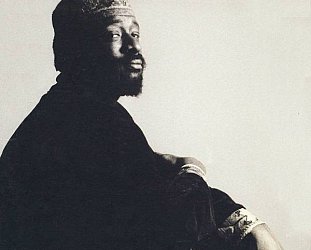
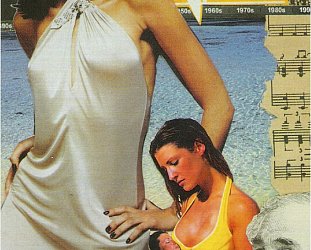
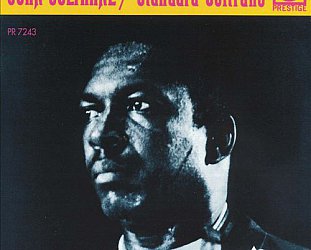
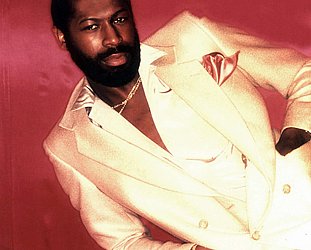

post a comment